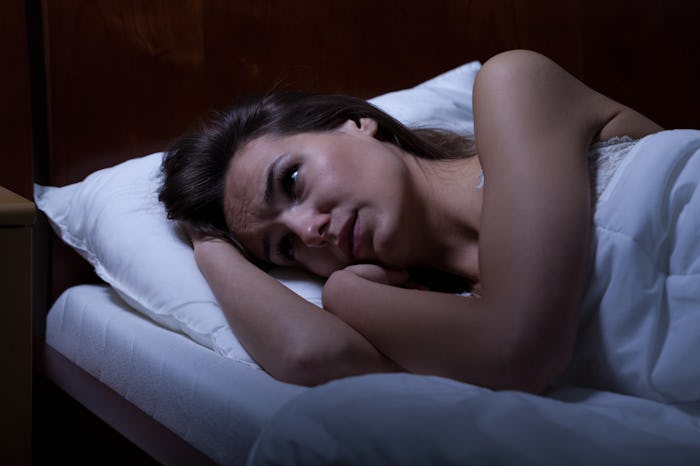It is common for new moms to feel tired, sad, and even lonely. For some, a few extra hours of sleep or some pampering can make things better. But for mothers with postpartum depression, the feelings can make it almost impossible to get through the day and can even keep them up at night. If you are suffering from postpartum depression, you'll want to be aware of the ways postpartum depression affects your sleep.
According to WebMD, postpartum depression affects nearly 13 percent of new mothers. The symptoms can appear at any time from a few weeks to up to a year after giving birth. Some of these symptoms include loss of appetite, difficulty sleeping, and deep sadness.
Often, postpartum depression is confused with the baby blues. But postpartum depression is more than just feeling unhappy or tired after giving birth. It can be incredibly debilitating to a new mother, as often the depression can make it difficult for her to complete her daily routine. Unfortunately, sleep issues and depression can be a vicious cycle, as depression can make it difficult to sleep and the lack of sleep can exacerbate your depression.
If your feelings of sadness linger for hours at a time for several days in a row, you should consult your doctor for help with managing your symptoms. In addition to medication, talk therapy, journaling, and even yoga can make it easier to cope and continue to bond with your baby.
1It Can Be Difficult To Sleep Train Your Baby
Sleep training can be difficult, and mothers who are suffering from postpartum depression often have little energy to take on the task. According to The Huffington Post, postpartum depression can affect a mother's ability to sleep train her baby, which in turn can make it tougher for her to get a good night's sleep.
2Your Thoughts Can Keep You Awake At Night
Postpartum depression can leave mothers with feelings of guilt, anxiety, and even thoughts of suicide. You can become preoccupied with these thoughts, which can in turn keep you up at night, according to Kids Health.
3You May Sleep Too Much
According to WebMD, some mothers who suffer from postpartum depression sleep too much. This can interfere with the time you would normally spend caring for and bonding with your baby.
4You Are Preoccupied With Sleep
Insomnia is one of the symptoms of postpartum depression. A mother who is depressed may be feeling uneasy about her lack of sleep. According to Psychology Today, a mother with postpartum depression is often so preoccupied with sleep that her thoughts of worry about getting enough sleep at night interfere with her body's ability to settle down and get ready to sleep.
5Your Physical Symptoms Can Keep You Awake
If you suffer from postpartum depression, you may experience headaches, body pains, or nausea as a result, according to Baby Center. These uncomfortable physical symptoms may keep you awake at night.
